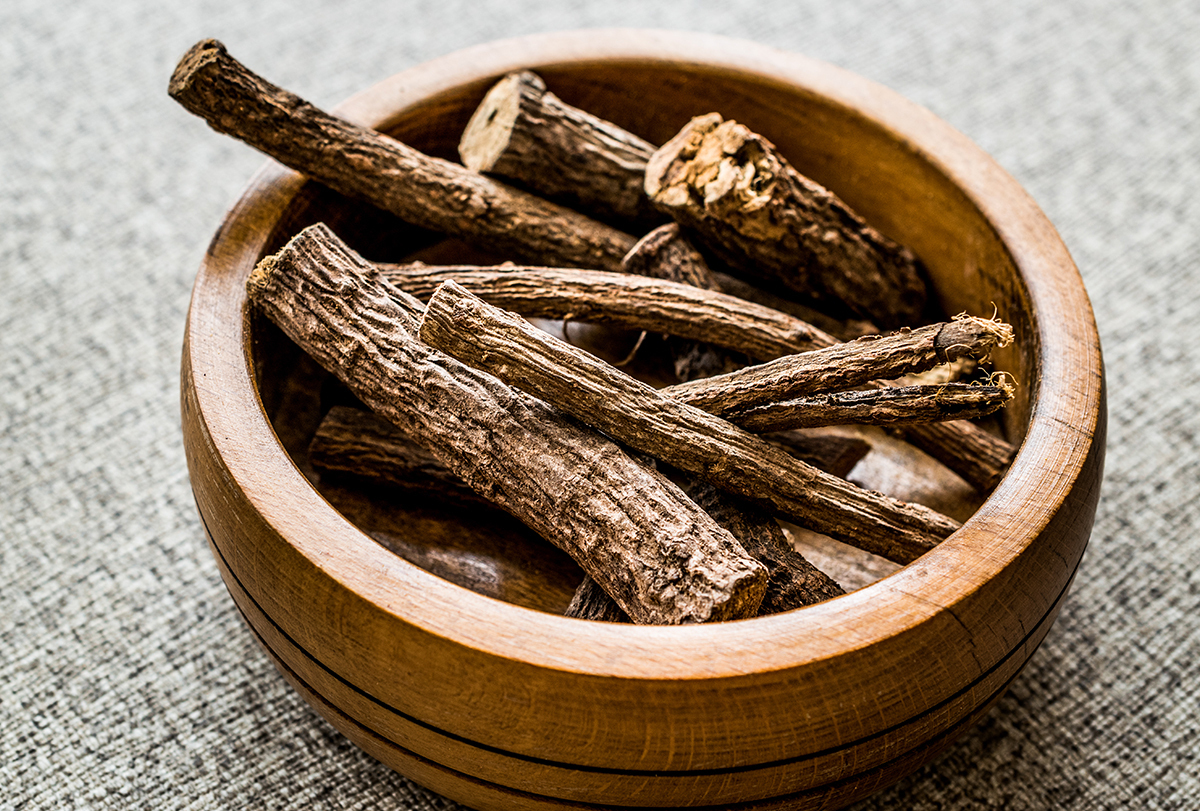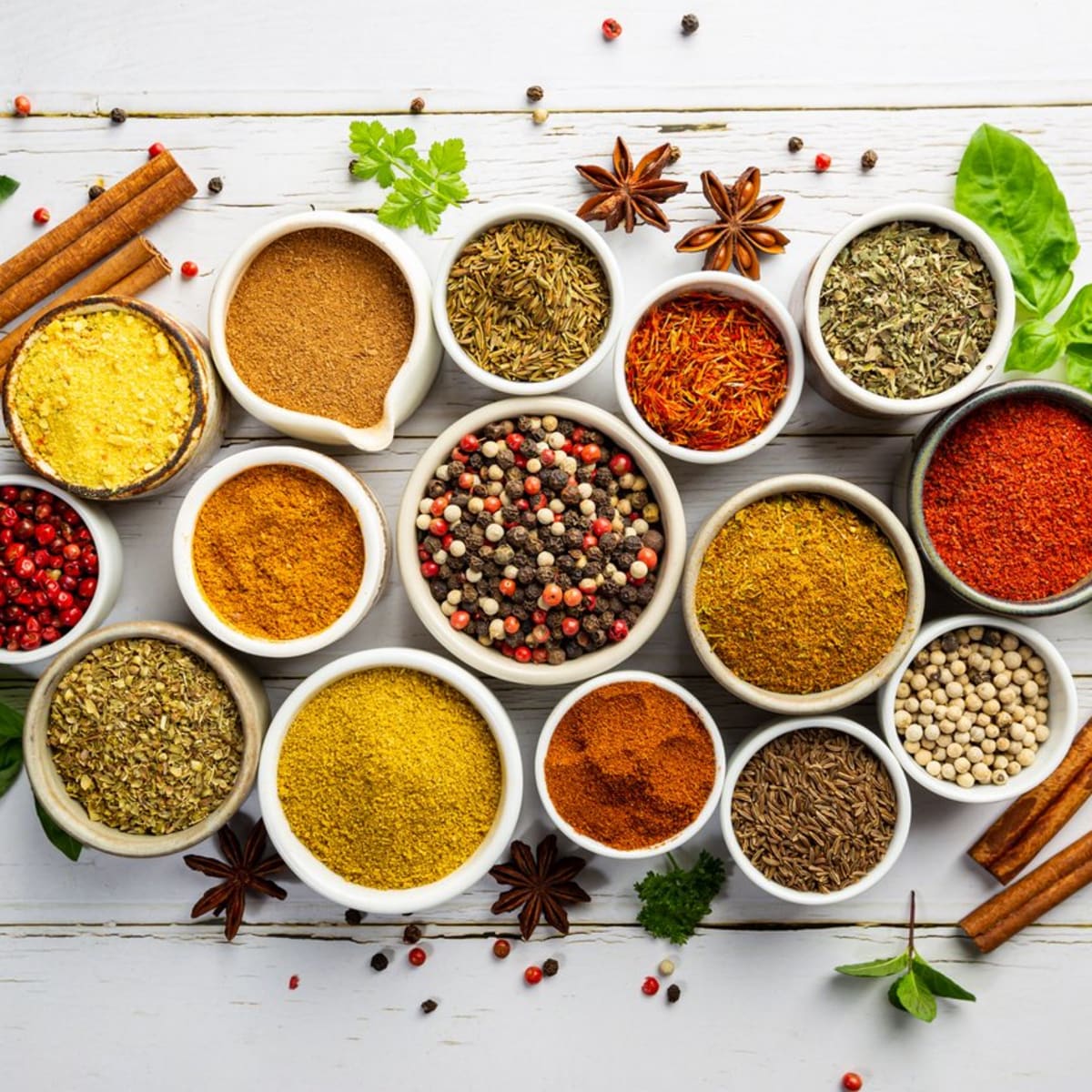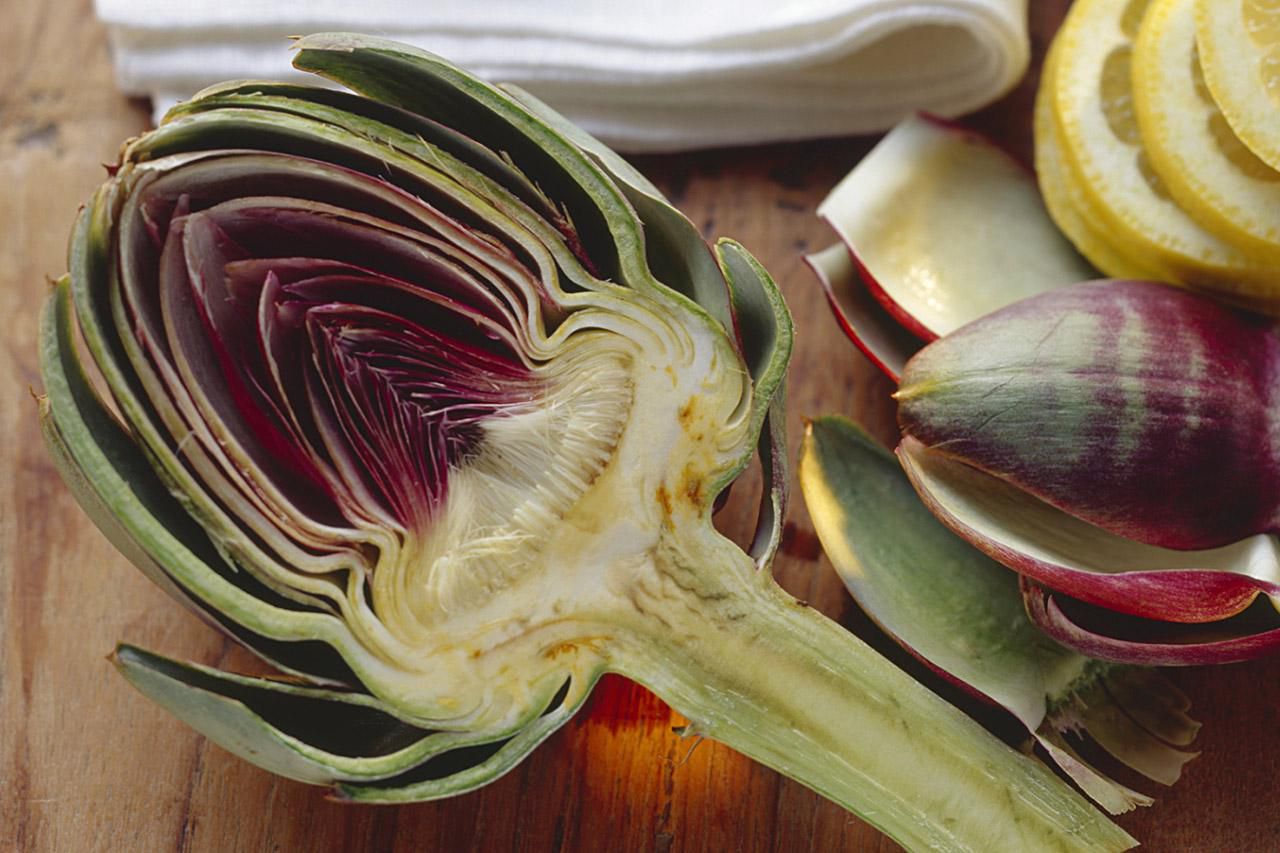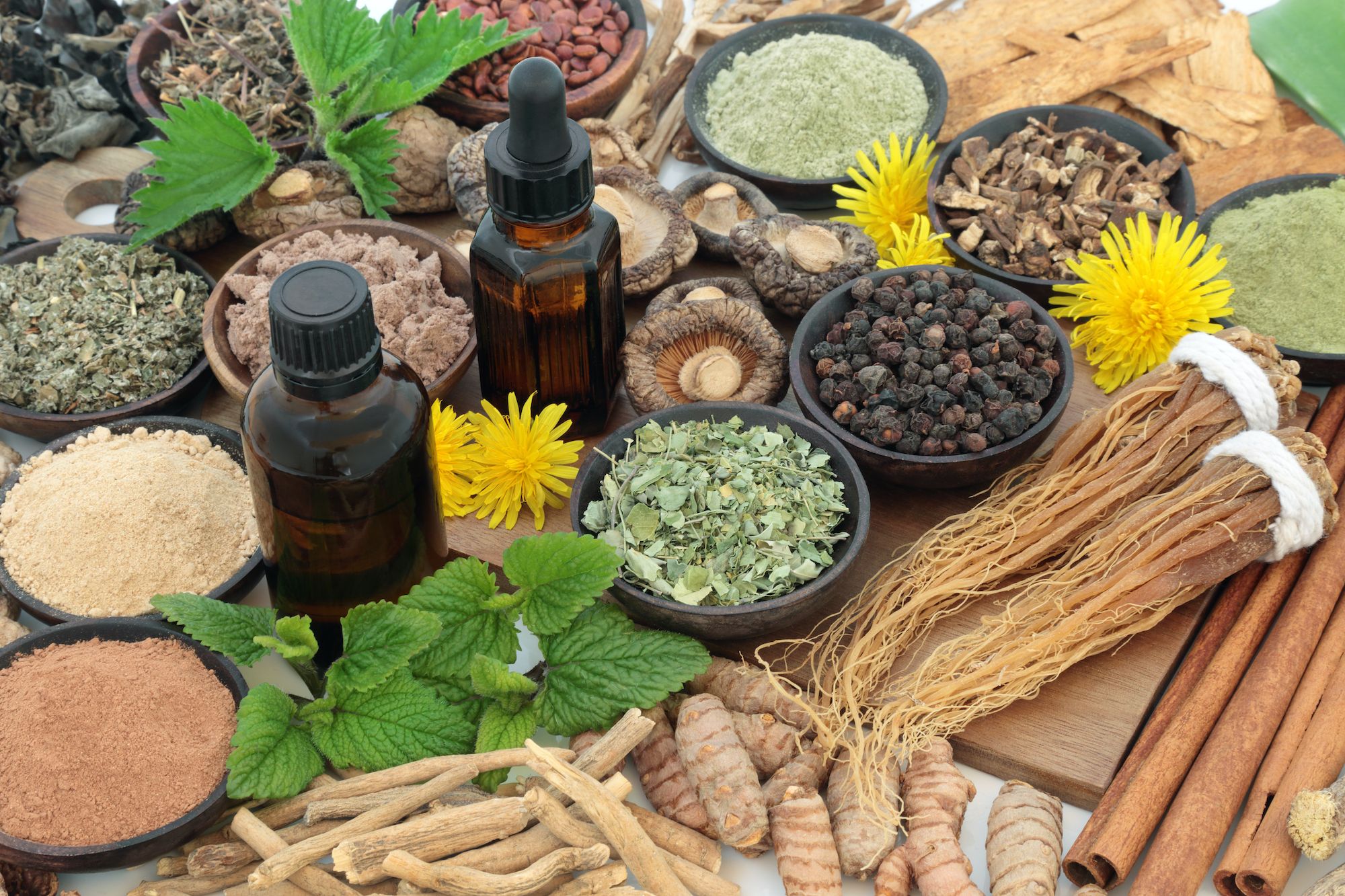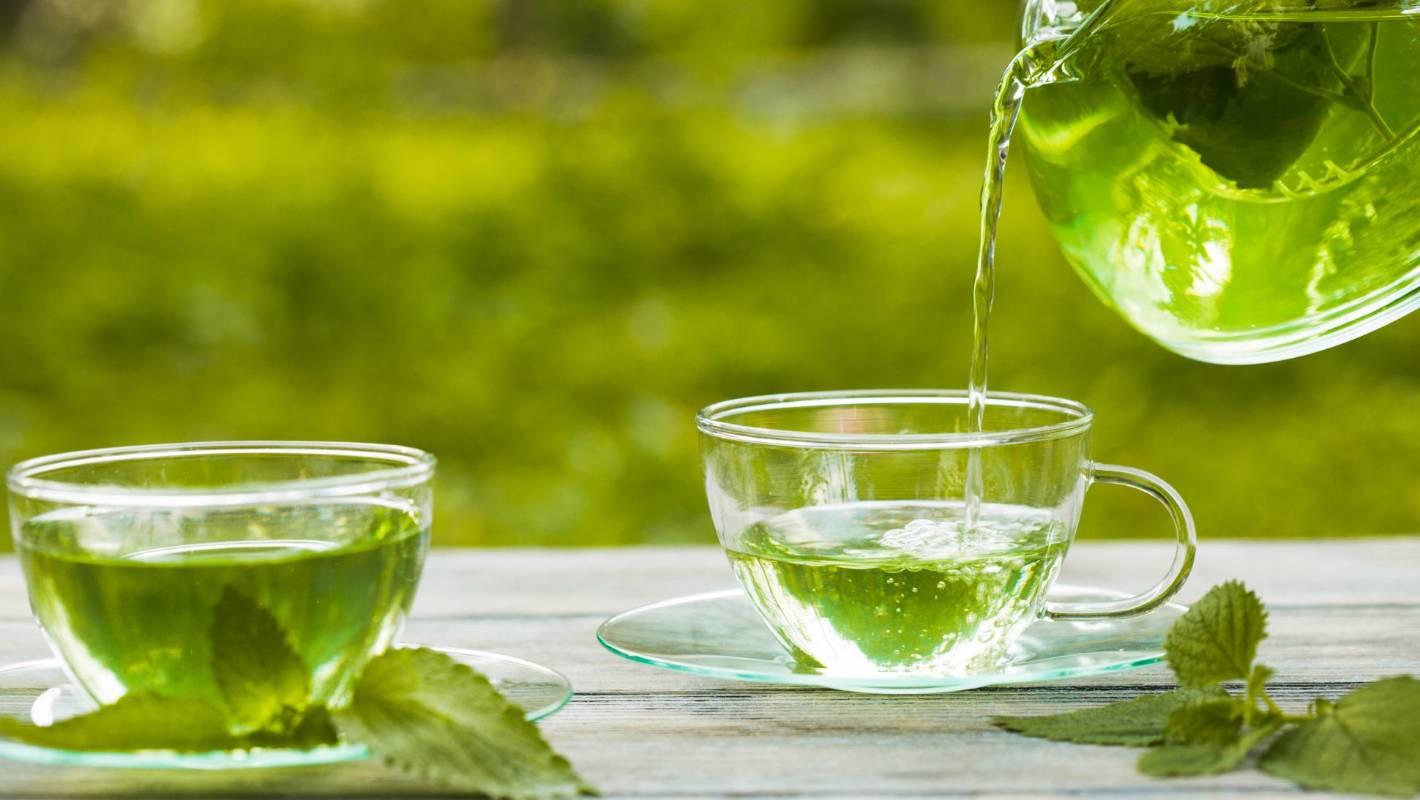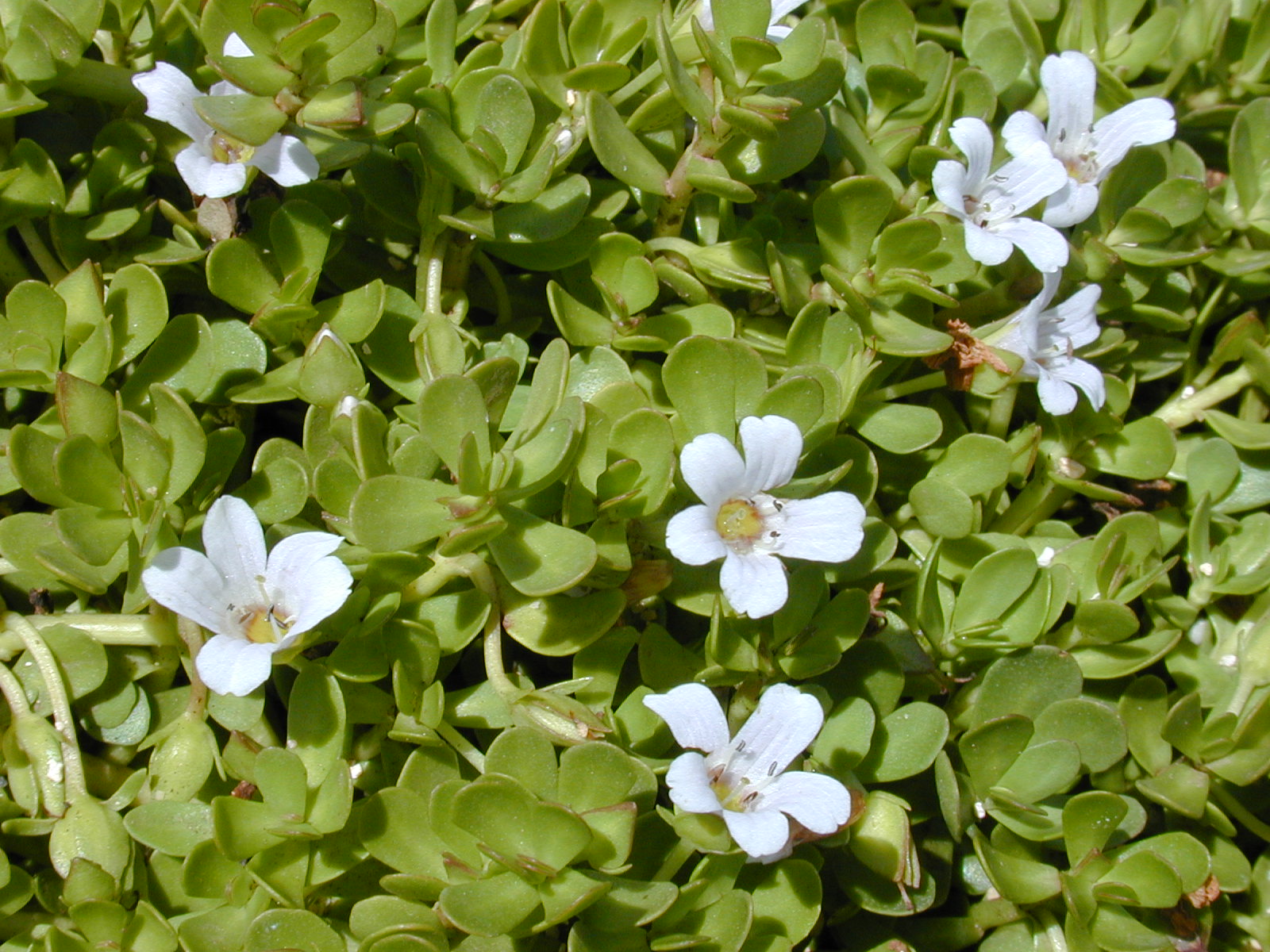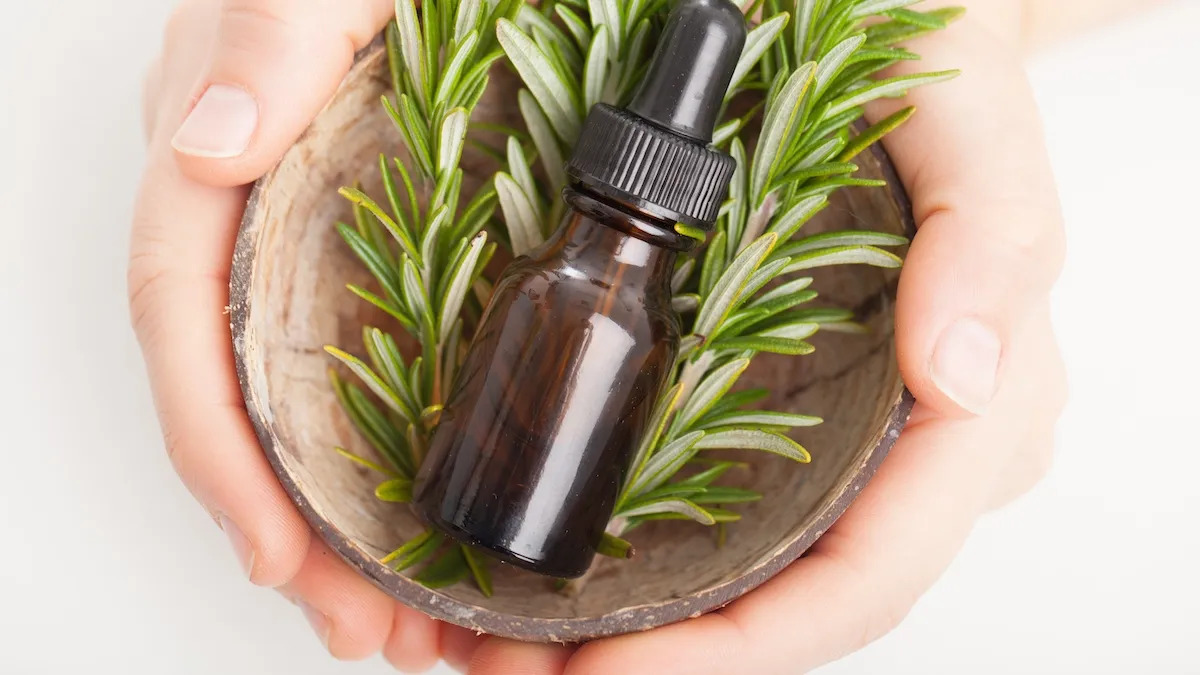Home>Gardening News and Trends>Gardening Trends>What Herbs Help With Memory
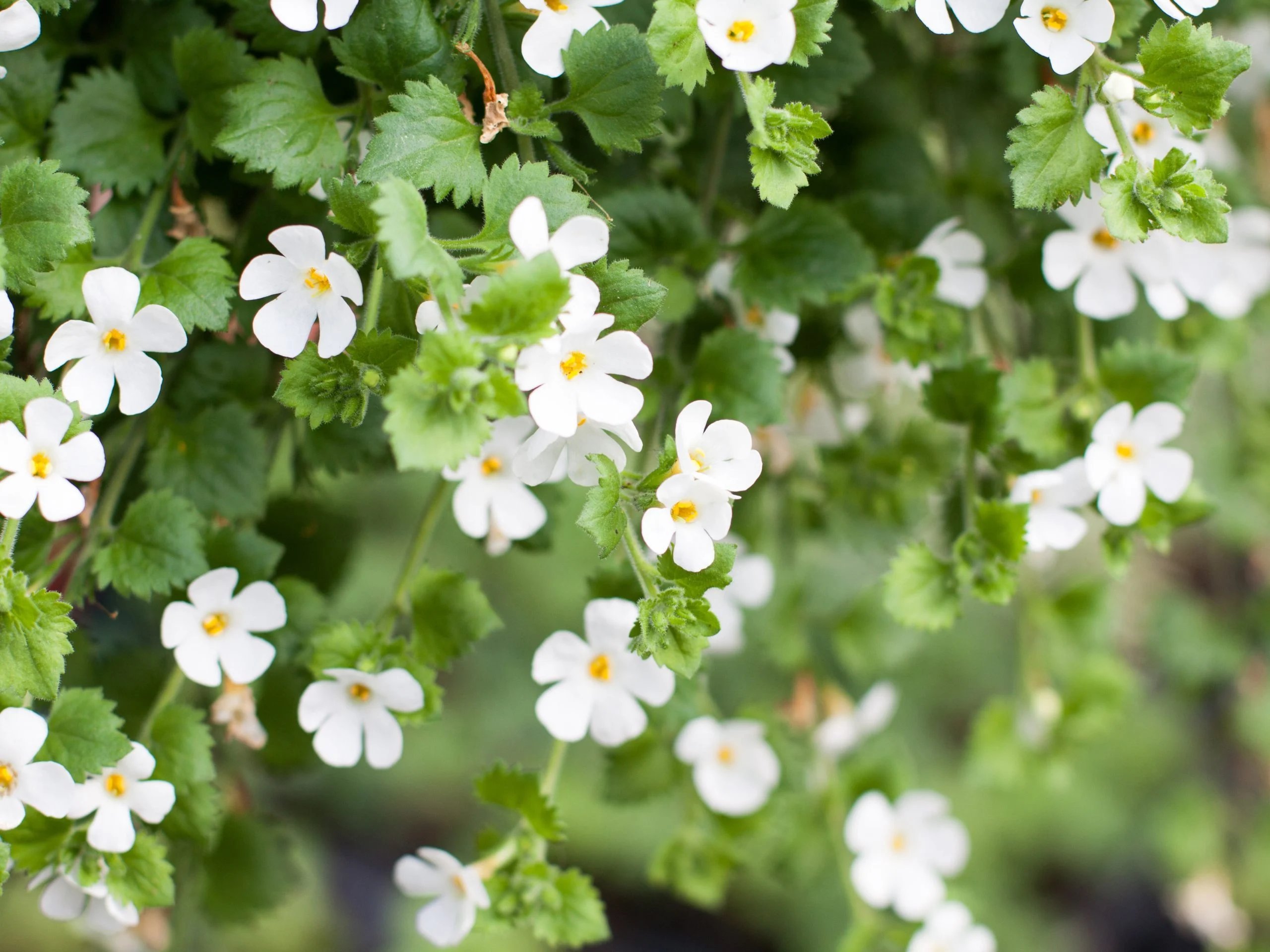

Gardening Trends
What Herbs Help With Memory
Modified: February 1, 2024
Discover the top gardening trends for herbs that can boost your memory and cognitive function. Explore the best herb varieties that enhance brain health and improve memory retention.
(Many of the links in this article redirect to a specific reviewed product. Your purchase of these products through affiliate links helps to generate commission for Chicagolandgardening.com, at no extra cost. Learn more)
Table of Contents
Introduction
Welcome to the world of herbal remedies! In today’s fast-paced society, many of us are looking for natural ways to improve our health and well-being. When it comes to memory and cognitive function, herbs have been used for centuries to enhance brain power and mental clarity. Whether you are a student looking to boost your focus and retention, or an older adult hoping to support your cognitive health, there are several herbs that are known for their memory-enhancing properties.
In this article, we will explore some of the most popular herbs and botanicals that have been traditionally used to support memory and concentration. From the aromatic rosemary to the potent ginkgo biloba, these herbs have gained popularity in recent years as people seek alternative remedies for cognitive enhancement.
It is important to note that while these herbs have been used for centuries and have anecdotal evidence to support their benefits, it is always advisable to consult with a healthcare professional before starting any new herbal regimen, especially if you have underlying medical conditions or are taking other medications.
So, without further ado, let’s dive into the fascinating world of herbs that help with memory!
Rosemary
Rosemary (Rosmarinus officinalis) is not just a fragrant herb used in cooking; it also has a long-standing reputation for its memory-enhancing properties. In ancient Greece, students would often wear rosemary garlands while studying to improve their memory and concentration.
Research suggests that rosemary contains compounds that can boost cognitive function. One such compound is rosmarinic acid, which has been found to have antioxidant and anti-inflammatory effects in the brain. These properties may help protect brain cells from damage and slow down age-related cognitive decline.
A study published in the journal Therapeutic Advances in Psychopharmacology found that the scent of rosemary essential oil can enhance memory and improve cognitive performance. Participants who were exposed to the aroma of rosemary essential oil showed better memory and alertness compared to those who were not exposed to the scent.
Not only does rosemary have potential cognitive benefits, but it is also rich in antioxidants, which can help protect the brain from oxidative stress. Additionally, rosemary is known to have mood-boosting properties and may help alleviate stress and anxiety, which can further support cognitive function.
There are various ways to incorporate rosemary into your daily routine. You can brew rosemary tea by steeping fresh or dried rosemary leaves in hot water for a few minutes. Adding rosemary to your meals as a seasoning not only enhances the flavor but also provides its potential cognitive benefits. You can also use rosemary essential oil in a diffuser or mix a few drops with a carrier oil for a refreshing massage or inhalation.
While rosemary is generally safe for consumption and topical application, it is important to remember that everyone’s body may react differently. If you are pregnant, have epilepsy, or have any other underlying health conditions, it is advisable to consult with a healthcare professional before using rosemary.
Ginkgo Biloba
Ginkgo biloba, often referred to as simply ginkgo, is one of the oldest living tree species in the world. It has been used in traditional Chinese medicine for centuries to enhance memory and cognitive function. Extracts from the leaves of the ginkgo tree are believed to have potent medicinal properties.
Research suggests that ginkgo biloba may improve blood flow to the brain, which is crucial for optimal cognitive function. It contains compounds called flavonoids and terpenoids, which are thought to have antioxidant and anti-inflammatory effects. These properties may help protect the brain from oxidative damage and improve memory and cognitive performance.
A systematic review of clinical studies published in the Journal of Alzheimer’s Disease showed that ginkgo biloba extract can have a positive impact on memory and attention in individuals with mild cognitive impairment or Alzheimer’s disease. However, it is important to note that further research is needed to fully understand the effectiveness of ginkgo biloba in improving cognitive function.
Ginkgo biloba is available in various forms, including capsules, tablets, and liquid extracts. It can be taken as a supplement, preferably under the guidance of a healthcare professional. The recommended dosage may vary depending on individual needs and health conditions.
While ginkgo biloba is generally considered safe, it can interact with certain medications, including blood thinners and antidepressants. It may also cause side effects such as headache, dizziness, and digestive issues in some individuals. Therefore, it is important to consult with a healthcare professional before starting any new supplements or herbal remedies.
It is worth mentioning that the effects of ginkgo biloba may not be immediate, and it may take several weeks or months of consistent use to notice any cognitive improvements. Additionally, it is important to remember that ginkgo biloba is not a magical solution for memory problems and should be used as part of a holistic approach to brain health, including a balanced diet, regular exercise, and mental stimulation.
Bacopa Monnieri
Bacopa monnieri, also known as Brahmi, is a herb that has been used in Ayurvedic medicine for centuries to enhance memory and promote overall cognitive health. It is native to India, where it is considered one of the most powerful herbs for rejuvenating the mind.
Research suggests that Bacopa monnieri contains compounds called bacosides, which have been found to have neuroprotective properties. These compounds may help protect brain cells from damage, improve nerve impulse transmission, and enhance memory and learning.
A systematic review of studies published in the journal Evidence-Based Complementary and Alternative Medicine concluded that Bacopa monnieri can have a positive effect on cognitive function, especially memory and attention. The review found that regular consumption of Bacopa monnieri extract improved cognitive performance and reduced the risk of age-related cognitive decline.
In addition to its memory-enhancing properties, Bacopa monnieri also has anxiolytic effects, meaning it can help reduce anxiety and stress. This can have a positive impact on cognitive function, as stress and anxiety can impair memory and concentration.
Bacopa monnieri is typically consumed in the form of a supplement. The recommended dosage may vary depending on the specific product and individual needs. It is important to follow the instructions on the packaging or consult with a healthcare professional for guidance.
While Bacopa monnieri is generally safe for most people, it may cause mild side effects such as digestive issues, nausea, and fatigue in some individuals. It is also important to note that it may take several weeks or even months of consistent use to experience the full benefits of Bacopa monnieri.
As with any herbal remedy, it is advisable to consult with a healthcare professional before starting Bacopa monnieri, especially if you have any underlying health conditions or are taking other medications.
Gotu Kola
Gotu kola (Centella asiatica), also known as Indian pennywort, is an herb that has been used in traditional medicine for centuries to improve cognitive function and boost brain health. It is native to Southeast Asia and has a long history of use in Ayurvedic and Chinese medicine.
Gotu kola contains several active compounds, including triterpenoids, which are believed to have neuroprotective properties. These compounds have been shown to support the growth of nerve cells, enhance synaptic plasticity, and improve memory and cognitive function.
A study published in the Journal of Ethnopharmacology found that gotu kola extract improved cognitive performance and reduced anxiety in healthy elderly individuals. Another study published in the Journal of Medicinal Food showed that gotu kola extract had a positive effect on memory, attention, and overall cognitive function.
In addition to its memory-enhancing properties, gotu kola is also known for its ability to reduce stress and promote relaxation. Chronic stress can negatively impact cognitive function, so the anxiolytic effects of gotu kola can help improve mental clarity and focus.
Gotu kola can be consumed in various forms, including capsules, tablets, and teas. The recommended dosage may vary depending on the specific product and individual needs. It is important to follow the instructions on the packaging or consult with a healthcare professional for guidance.
While gotu kola is generally safe for most people, it may cause side effects such as stomach upset and skin allergies in some individuals. It is important to start with a low dosage and gradually increase it to assess your tolerance. If you have any underlying health conditions or are taking medications, it is advisable to consult with a healthcare professional before using gotu kola.
As with any herbal remedy, it is important to note that results may vary from person to person. It may take several weeks or even months of consistent use to notice significant improvements in memory and cognitive function. It is also important to incorporate other lifestyle factors, such as a healthy diet, regular exercise, and adequate sleep, to support overall cognitive health.
Sage
Sage (Salvia officinalis) is a fragrant herb that is not only popular in cooking but also renowned for its memory-enhancing properties. It has a long history of use in traditional medicine, particularly in the Mediterranean region.
Research suggests that sage contains compounds that can improve cognitive function and memory. One of these compounds is rosmarinic acid, which has antioxidant and anti-inflammatory effects. These properties can help protect brain cells from oxidative stress and reduce inflammation, both of which are associated with cognitive decline.
A study published in the Journal of Psychopharmacology investigated the effects of sage on cognitive performance in healthy young adults. The results showed that participants who consumed sage oil capsules had improved memory and attention compared to those who received a placebo.
Sage has also been studied for its potential benefits in age-related cognitive decline and Alzheimer’s disease. A systematic review published in the Journal of Clinical Pharmacy and Therapeutics found evidence suggesting that sage extract can improve cognitive function in individuals with mild to moderate Alzheimer’s disease.
In addition to its memory-enhancing properties, sage has been used traditionally to improve mood and reduce anxiety. Stress and anxiety can have a negative impact on memory and cognitive function, so the calming effects of sage may further contribute to its cognitive benefits.
Sage can be consumed in various forms, including dried leaves, teas, and supplements. Drinking sage tea on a regular basis or adding dried sage to your meals can be a simple way to incorporate this herb into your daily routine. Sage essential oil can also be used for aromatherapy, either through a diffuser or by inhaling the scent directly.
While sage is generally safe for most people, it is important to use it in moderation, as high doses may cause digestive issues. It is always advisable to consult with a healthcare professional before using sage as a supplement or if you have any underlying health conditions.
Remember, herbal remedies can be a supportive addition to a healthy lifestyle that includes a balanced diet, regular exercise, good sleep, and mental stimulation. Incorporating sage into your routine may help support your cognitive health and enhance your memory, but it is not a magical solution and should be used as part of a holistic approach.
Ginseng
Ginseng is a popular herb known for its adaptogenic properties and its ability to enhance cognitive function. There are several types of ginseng, including Asian ginseng (Panax ginseng) and American ginseng (Panax quinquefolius), both of which are used for their medicinal benefits.
Research suggests that ginseng contains compounds called ginsenosides, which have neuroprotective and anti-inflammatory properties. These compounds may help improve memory, enhance mental performance, and increase cognitive function.
A study published in the Journal of Ginseng Research found that ginseng supplementation improved cognitive performance in healthy young adults. Participants who took ginseng showed enhanced mental processing speed, accuracy, and attention compared to those who received a placebo.
In addition to its memory-enhancing effects, ginseng is also known for its ability to reduce mental fatigue and enhance overall mental well-being. It may help increase energy levels, improve focus, and reduce feelings of stress and anxiety, all of which can positively influence cognitive function.
Ginseng is commonly consumed in the form of capsules, powders, or extracts. The recommended dosage may vary depending on the specific product and individual needs. It is important to follow the instructions on the packaging or consult with a healthcare professional for guidance.
While ginseng is generally safe for most people, it may interact with certain medications, such as blood thinners and immunosuppressants. It may also cause side effects such as headaches, digestive discomfort, and changes in blood pressure in some individuals. It is advisable to consult with a healthcare professional before starting ginseng supplementation, especially if you have any underlying health conditions or are taking medications.
It is worth noting that the effects of ginseng may vary from person to person. It may take several weeks or even months of consistent use to experience noticeable improvements in memory and cognitive function. Incorporating ginseng into a holistic approach to brain health, which includes a balanced diet, regular exercise, and mental stimulation, can help optimize its benefits.
Ashwagandha
Ashwagandha (Withania somnifera) is an adaptogenic herb that has been used in Ayurvedic medicine for centuries to promote overall well-being and improve cognitive function. It is known for its stress-reducing properties and its ability to support a healthy response to physical and mental stress.
Ashwagandha contains a group of compounds called withanolides, which have been found to have neuroprotective effects. These compounds help support the growth of nerve cells, protect against oxidative stress, and enhance memory and cognitive function.
Research suggests that ashwagandha can improve cognitive performance and memory. A study published in the Journal of Dietary Supplements showed that individuals who took ashwagandha extract experienced significant improvements in both immediate and general memory recall.
Ashwagandha also has anxiolytic effects, meaning it can help reduce anxiety and stress. Chronic stress can have a negative impact on cognitive function, so the ability of ashwagandha to promote relaxation and calmness may contribute to its cognitive-enhancing properties.
In addition to its memory-enhancing effects, ashwagandha is also believed to support energy levels, improve focus, and enhance overall mental clarity. It may help improve sleep quality, which is essential for cognitive function and memory consolidation.
Ashwagandha is commonly consumed in the form of capsules or powdered extracts. The recommended dosage may vary depending on the specific product and individual needs. It is advisable to follow the instructions on the packaging or consult with a healthcare professional for guidance.
While ashwagandha is generally considered safe for most people, it may interact with certain medications, including sedatives, immunosuppressants, and thyroid medications. It may also cause mild side effects such as upset stomach or drowsiness in some individuals. It is recommended to consult with a healthcare professional before starting ashwagandha supplementation, especially if you have any underlying health conditions or are taking medications.
Remember, ashwagandha is not a magical solution, and results may vary from person to person. It may take several weeks or even months of consistent use to experience noticeable improvements in cognitive function. Incorporating ashwagandha into a holistic approach to brain health, including a balanced diet, regular exercise, and mental stimulation, can help optimize its benefits.
Conclusion
In today’s fast-paced world, we are all seeking ways to enhance our cognitive abilities and improve our memory. While there is no magic pill for achieving optimal brain health, incorporating certain herbs into our daily routines can provide natural support for memory and cognitive function.
Throughout this article, we have explored some of the most popular herbs known for their memory-enhancing properties. From the aromatic rosemary to the adaptogenic ashwagandha, each herb offers unique benefits that can help boost brain power and mental clarity.
While herbs like rosemary, ginkgo biloba, Bacopa monnieri, gotu kola, sage, ginseng, and ashwagandha have been traditionally used for centuries and have shown promising results in scientific research, it is important to approach their usage with caution. It is advisable to consult with a healthcare professional before incorporating any new herbal remedies, especially if you have underlying health conditions or are taking medications. They can provide personalized guidance and ensure that these herbs are safe and appropriate for you.
Remember, herbs are not a magical solution on their own. They should be used as part of a holistic approach to brain health, which includes a well-balanced diet, regular exercise, adequate sleep, stress management, and mental stimulation. These lifestyle factors play a crucial role in optimizing cognitive function and promoting overall well-being.
By incorporating these memory-enhancing herbs into your daily routine and adopting a healthy lifestyle, you can support your cognitive health and potentially improve your memory, focus, and mental clarity. It’s time to embrace the power of nature and discover the benefits that these herbs can bring to your brain.
